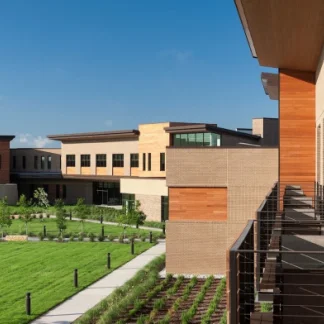Texas Health Recovery and Wellness Center
Grand Prairie, Texas, 240 North Miller Road, 76063
Available Programs
- Adolescence program
- Adult program
- Program for men
- Program for women
- Total beds : 80
- Young adult program
Insurance and Financial
- Self-pay options
- Private insurance
- Financing available
- Medicaid
- Medicare
- Daily
About this Facility
Texas Health Recovery and Wellness Center, located in Mansfield, Texas, is a substance use disorder and mental health treatment center that provides gender specific care for men and women. They are also LGBTQ friendly and provide specialty tracks for young adults.
Texas Health Recovery and Wellness Center offers detoxification services, residential treatment, partial hospitalization, and intensive outpatient treatment. The detox program at Texas Health Recovery and Wellness Center is monitored by nurses and physicians who are experienced in addiction and detox. Each detox protocol is created on an individual basis to receive personalized treatment that supports the correct timing, duration, and intensity.
Residential treatment at Texas Health and Recovery Wellness Center provides gender specific residential treatment to support the fact that men and women have unique issues with healing when it comes to addiction. Everyone is provided 24 hour monitoring, treatment, and recovery in a supportive and therapeutic environment that draws from a multidisciplinary approach to treatment.
The adult partial hospitalization program is for individuals who do not need to stay in the hospital but still require a highly structured outpatient program. This program often serves as a bridge for those transitioning from inpatient care for substance use disorder.
The intensive outpatient program is suitable for those who no longer need residential or partial hospitalization treatment. The service provides continued support for addiction through individual therapy, group therapy, and educational classes on recovery. Medications may be managed for those who use them, and trauma support may also be offered. The goal is to continue to move toward a life of recovery and a suitable aftercare treatment plan that allows for reintegration back into society.
Group therapy involves treatment through the process of connecting in a group setting to discuss and work through mental, emotional, and physical issues. There are a number of different group therapy modalities, including support groups, experiential therapy, psychoeducation, and more.
Contact us for more information: (682) 812-6150

Contact Texas Health Recovery and Wellness Center
Connect with Texas Health Recovery and Wellness Center by calling their admissions team directly.
(682) 812-6150 Website Get Directions